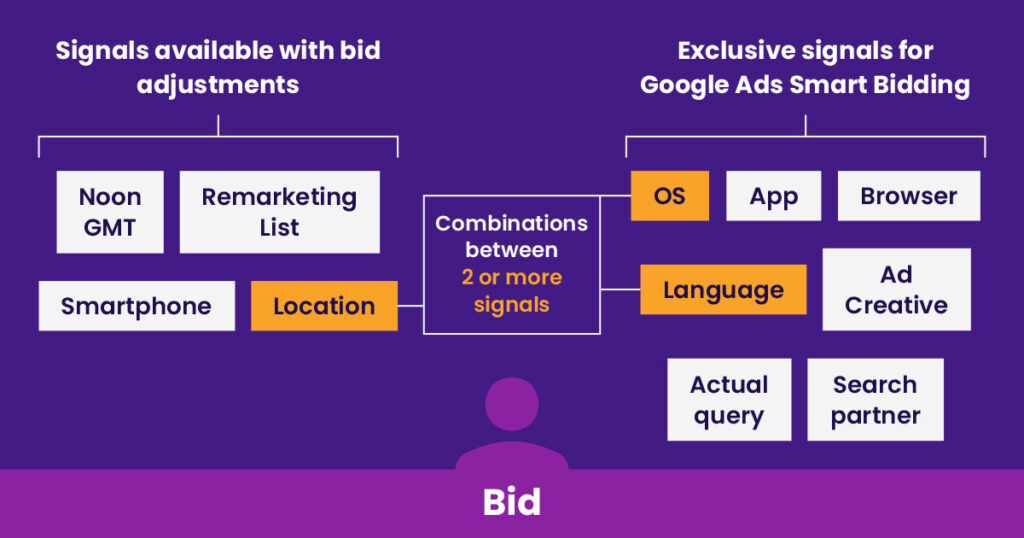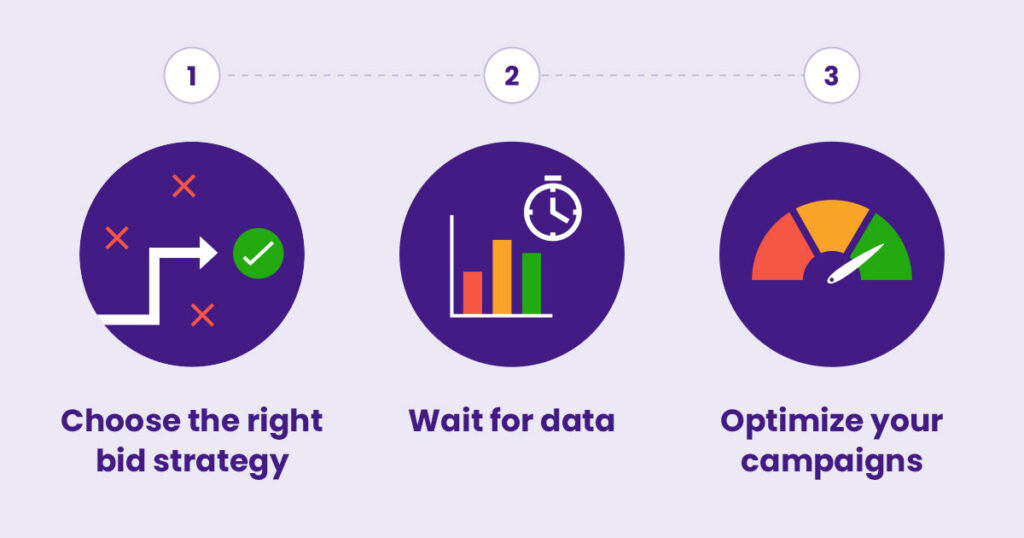Bid management is a significant element of any paid search campaign – as you might expect when it comes to auction-style media buying – but technological advancements along with shifts in user behavior have made it increasingly difficult for advertisers to consider all relevant factors within a manual bidding strategy.
When a user types a query into a search engine, there are a huge number of behavioral, technological, and demographic variables which can help to indicate a user’s need state, and the information they might be looking for. Whilst this context helps advertisers to provide useful and relevant content in response to a user’s query, it can also help an advertiser to gauge how fruitful an ad served against the query might be. For example, a user searching for ‘Italian restaurants’ might seem like a perfect prospect for a London pizzeria, unless that user is based in New York, or is looking exclusively for gluten-free options. Aside from the user and their characteristics, search queries themselves have evolved to the extent where small nuances in phrasing can indicate a high likelihood of conversion or could indicate a user is still firmly in research mode.
With this in mind, here’s how Smart Bidding can help advertisers bid strategically in every auction:
Let Auction-Time Bidding make quick, multi-faceted decisions
In instances of manual bidding, an advertiser would need to carry out a significant amount of analysis against different users and their characteristics in order to determine segments that may deserve higher bids. Smart bidding utilizes Auction-Time bidding, allowing the strategy to place an appropriate bid for each individual auction, based on a plethora of user signals and context. A Smart Bidding strategy will combine factors such as the user’s device, location, remarketing list membership, and the time of day – against which manual bid adjustments can be applied – with other signals which are used exclusively by the Smart Bidding function. These signals include the user’s language, the exact query they’ve searched, the browser they’re using, the creative they’ve been served, and more.

Choose from a range of goals
Google’s suite of Smart Bidding strategies includes various conversion-based goals and will make bidding decisions to meet the objective.
- Target CPA: Provide a target cost-per-acquisition (the amount you’re willing to pay to achieve a conversion) and this bid strategy will aim to increase conversions within this cost.
- Target ROAS: This strategy aims to achieve the highest return-on-ad-spend (similar to ROI). In order to use this bid strategy you’ll need to assign a value to your conversions.
- Maximise Conversions: This strategy will use your budget instead of a target CPA to achieve as many conversions as possible within your spending threshold.
- Maximise Conversion Value: Similar to Target ROAS but with the aim of achieving the highest conversion value within your budget.
Steer your automated bidding to suit your business
There are several functions within your campaigns that can help to guide your bid strategy based on your business needs. Each Smart Bidding strategy provides the option to implement parameters including your targets and budget and bid limits; these parameters can be tweaked for optimal performance and to maintain control over your campaigns.
Negative keywords can help to limit the auctions your ads are entered into and ensure the user’s query aligns with your product or service. In addition, headlines and descriptions within RSAs (responsive search ads) can be pinned in position to ensure messaging appears as required within the ad unit (For example, terms and conditions or other required wording).

Adjustments can also be made to your target conversion to steer the Smart Bidding strategy in the right direction – Conversion Value Rules can be used to indicate additional insights about your prospective customers, and Data Exclusions allow advertisers to ‘hide’ inaccurate data from the bid strategy. For example, there may be a period of time during which you would consider your conversion data to be inaccurate – maybe you had an issue with the tracking on your website, or recent conversion data isn’t reflective of ‘usual’ performance. Data exclusions will prevent the bid strategy from referencing the data collected on those days to avoid training the bid strategy model on inaccurate data.
In Summary
Smart bidding strategies are available within all Google accounts that have conversion tracking implemented. Ensure your tracking tag has been placed on your website, and your conversion events have been configured in order to benefit from Smart Bidding strategies.
Thanks to Smart Bidding, you can use machine learning to get you closer not only to your marketing goals but also to financial business objectives. Get started today and discover how Smart Bidding strategies can reinvigorate your campaigns.




